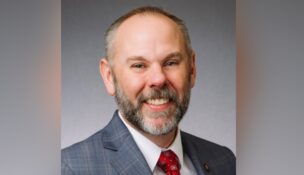Pandemic-driven eviction concerns worry tenants, landlords
Contributing Writer //October 21, 2021//
By Christina Lee Knauss
Ask financially strapped South Carolina tenants and their landlords to sum up the past several months and two words will probably be at the top of the list: confusion and frustration.
Earlier this year, the ongoing COVID-19 pandemic led the Centers for Disease Control to continue extending a nationwide moratorium on evictions that had been in place since the spring of 2020. Originally slated to expire on July 31, the moratorium was extended until Oct. 3, but the U.S. Supreme Court struck down that decision on Aug. 26. As a result, tenants who fell behind on rent because of the pandemic are left facing eviction once again.
The bickering between elected officials and public health experts often left out the very real concerns of people on both sides of the issue, according to both Midlands realtors and advocates for affordable housing who say that while tenants’ concerns often get the most media coverage, many people often forget about property owners who rely on rental income.
“This has been causing stress for both renters and landlords,” said Alisa Mosley, executive director of the Affordable Housing Coalition of South Carolina in Columbia. “A lot of landlords are small business people who are at wits’ end about making mortgage payments and paying other bills.”
With the recent resurgence of COVID-19 across South Carolina, especially the delta variant, Mosley said many tenants are facing financial issues because of unemployment or health care issues such as long-haul side effects from COVID-19 infection.
When renters in dire straits call Mosley’s office, she steers them to assistance programs depending on where they live.
One of the main sources for help is the SC Stay Plus rental assistance program run by SC Housing. Launched in May, the $272 million program utilizes federal funds to help renters in 39 South Carolina counties. As of Aug. 12, SC Housing had approved 2,205 of 2,931 completed applications for total of $10.4 million in rental and utility assistance.
Seven counties in the state have received other funding and have their own rental assistance programs: Anderson, Berkeley, Charleston, Greenville, Horry, Richland and Spartanburg.
SC Housing officials recently made several updates to SC Stay Plus to make it easier for more people to apply for and receive help, according to SC Housing spokesperson Chris Winston.
One of the biggest is a relaxed documentation requirement that allows applicants to self-attest to certain information instead of having to provide detailed documentation. This includes allowing residents in 196 ZIP codes to self-attest to their income rather than having to provide documentation. SC Housing has also added staff and expanded hours for its call center, and added in-person support at libraries in Beaufort, Easley and Lancaster for people who need help filling out applications.
“Relaxing the documentation requirements has helped us get a lot more funding out the door,” Winston said. “This has hopefully been able to calm some of the landlords who have been expressing concerns. We provide funding directly to a tenant if the landlord is non-responsive, but that is a last resort. Our main focus is getting the funds to the landlord who is owed the money so the renter will continue to have a place to stay.”
The South Carolina Association of Realtors, meanwhile, has been trying to advance the interests of both property owners and tenants, according to CEO Nick Kremydas. Kremydas said the organization has been working since the summer to get information to tenants and property managers around the state about SC Stays Plus and other assistance programs, using both social media and an advertising campaign. Kremydas said the Association also had been lobbying legislators to try to make it possible for landlords to apply directly for assistance instead of having to wait for money generated by tenant applications.
“As an organization, we’ve been advocating not only for protecting tenants, but also for the rights of individual property owners who provide the properties for the tenants,” Kremydas said. “Because of the way South Carolina property tax laws are structured, most landlords need three months of rent simply to pay property taxes, on top of insurance, maintenance and other costs. It’s an issue of fairness.”
Steve Taylor, president of the Central Carolina Realtors Association, said he is familiar with the difficulties from both sides. He and his partner at Wolfe and Taylor Inc., a Columbia-based real estate agency, both own rental properties and have heard from tenants who were having problems making rent because of COVID-19. He asks people upset about the end of the moratorium to consider both sides of the issue. Tenants, he said, are not the only ones with financial challenges.
“It’s important to note that not all landlords are large corporations – many of them are small business people, folks that have bought investments to pay for their children’s college funds,” Taylor said. “That guy can’t afford not to be getting his rent. In Richland County it takes three months’ rent on the average property to pay the property taxes alone. If you have a tenant who is a year behind on rent, what do you do? We’re trying to educate our tenants and assist them with finding these programs that can help them get signed up for rental assistance. Short of that, I don’t know what else a landlord can do in the current situation.”
The Midlands Housing Trust Fund is working to alleviate the affordable housing crunch by providing loans to housing developers and contractors in 23 counties for projects that serve low- and middle-income residents.
The organization’s efforts recently got a welcome boost with an award of more than $1 million from the U.S. Department of the Treasury’s Community Development Financial Institution Rapid Response Program, which was set up to confront problems caused by the pandemic.
“This is a real positive for us because it’s tripled the loan capital we have available to originate loans to increase the inventory of affordable housing in the area,” said Jeff Larimore, the Trust Fund’s executive director. “Anything we can do to create more stable housing in a community improves life for the community as a whole.”
Projects funded by loans from the MHTF help to increase long-term affordable housing availability in communities because the projects come with a 20-year affordability covenant, Larimore said.
While projects such as the Trust Fund work to alleviate affordable housing crises down the road, good old-fashioned communication might be the best immediate solution for struggling tenants who can’t see a light at the end of the tunnel since the moratorium ended.
“I always tell tenants that if you are in a situation where you can’t pay your rent, for whatever reason, talk to your landlord and hopefully you can work something out,” Mosley said. “If a landlord doesn’t know why you’re not paying, they’re going to file eviction. Talk to your landlord, let them know what your plan is. Meanwhile, landlords should talk to their tenants and ask them what they can pay and when. Communication is often the best solution.”
F















